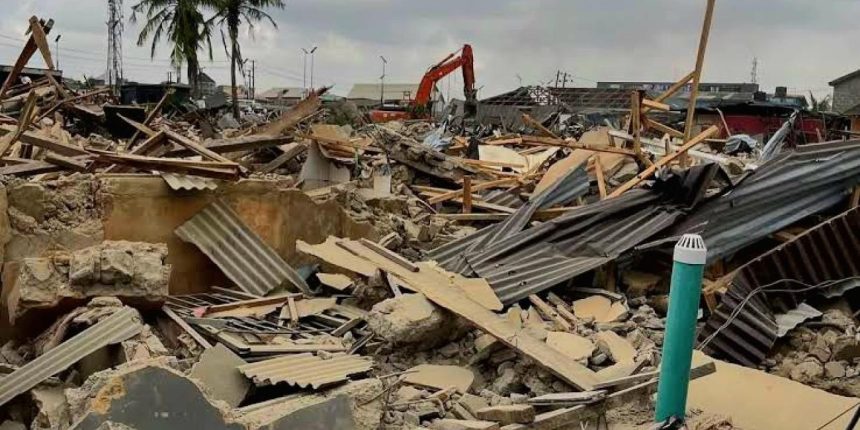Days after the Lagos State Government carried out a midnight demolition of waterfront settlements along Tolu Alashe Street in Oworonshoki, the once-bustling community has been reduced to rubble – and despair.
When Vanguard revisited the area, the scene was one of devastation: piles of broken blocks, twisted roofing sheets, and scattered household items marked where hundreds of families once lived and traded. Women and children, stranded under the open sky, now struggle to piece together the remnants of their lives.
Some residents sat helplessly beside salvaged possessions, hoping to sell whatever was left. Among them was Mrs. Rebecca, a mother of one, whose voice trembled as she recounted her ordeal.
“I have a problem with my spinal cord,” she said softly, sitting beside a rusted pot and a broken standing fan. “I paid ₦360,000 for my two-room apartment. I had just completed the payment when they came at night and destroyed everything. I wanted to end my life, but my sister stopped me.”
Rebecca, who sold cooked food before the demolition, said she has since resorted to selling her remaining belongings to survive – often at giveaway prices.
“I bought this fan for ₦35,000, but the aboki offered me ₦1,000. I don’t have a choice,” she said tearfully. “I just need money to eat and for treatment. Everywhere I turn, there is no help.”
Across the area, scrap buyers – mostly itinerant traders – were seen negotiating with displaced residents for their few remaining possessions.
Another victim, Mrs. Jumai, who had lived in the community for over a decade, recounted the chaos of that night.
“They came around 11 p.m. We were asleep when our neighbours started shouting that bulldozers were coming,” she said. “We grabbed what we could and ran. My home and my shop – where I sold pepper soup and drinks – were in the same compound. They destroyed everything.”
Jumai’s children’s school was also demolished. “We stayed in the same compound with the school. Now it’s all gone,” she lamented. “I don’t even know where to start again – no home, no business, no school for my children.”
As the dust settles over Oworonshoki, the human cost of the demolition continues to deepen. Families who once lived and worked by the waterfront now face hunger, illness, and homelessness – their dreams buried beneath the debris.



